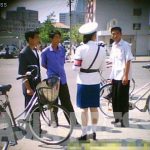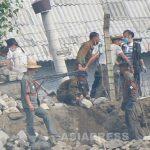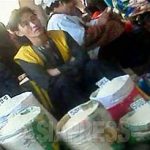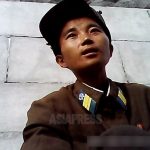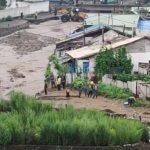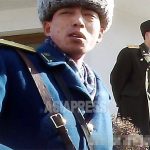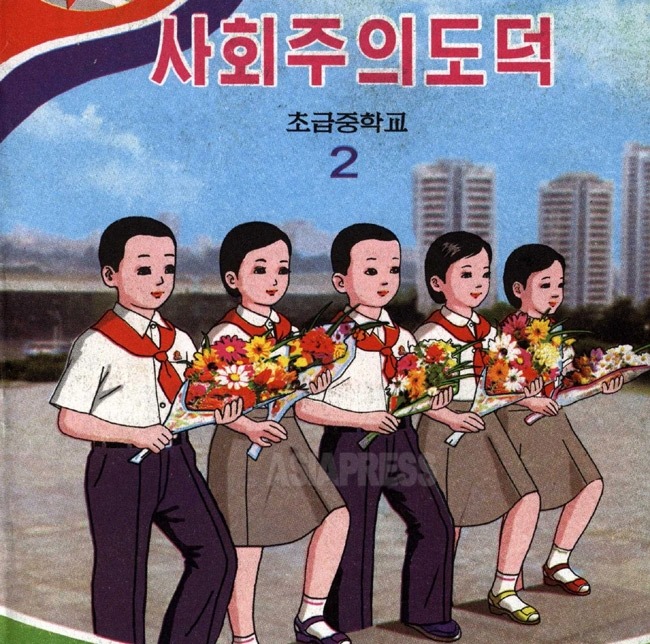
North Korea's February 2023 adoption of the "Prodigy Education Law" was a government attempt to cultivate the country’s elite. The law has led to the emergence of “classes for gifted students” that aim to push students to enter elite schools, but the law has created a growing dilemma for the North Korean authorities as it encourages the spread of private education, which in turn leads to educational inequality. (KANG Ji-won / JEON sung-jun)
◆The history of North Korea’s gifted education and the passage of the “Prodigy Education Law”
In the Kim Il-sung era, gifted education was vilified as discriminatory and reactionary. Under Kim Jong-il, however, the North Korean government’s view of such education changed. Recognizing the role of talented people in national competitiveness and social development, the country has shifted toward having a system that aims to cultivate such the “gifted.”
The North Korean authorities have implemented a policy to cultivate talented people for national construction and development by promoting a “gifted” education system centered on the Pyongyang First Middle School, Keumsung Academy, and the No. 1 Middle Schools in each province.
*Pyongyang No. 1 Middle School: A mathematics education institution located in the Potonggang District of Pyongyang, the school’s mission is to train national cadres and science and technology students through selecting highly intelligent students from across the country.
*Keumseong Academy: An academy in the Mangyongdae District of Pyongyang that trains gifted students in the arts.
In February 2023, the 14th Plenary Session of the 24th Standing Committee of the Supreme People's Assembly adopted the “Prodigy Education Law,” which establishes a system for gifted education, selects gifted students, establishes guidelines, and guarantees educational conditions. The law can be seen as laying the foundation for a more stable and sustainable effort to cultivate gifted students by codifying the tenants of gifted education policy.
◆ The growing gap in education inequality…some students can’t even eat lunch and have to given up going to school
However, contrary to the intentions of the North Korean authorities, educational inequality among North Koreans is growing as a side effect of the program.
In late August 2023, an ASIAPRESS reporting partner in Hyesan, a city in North Korea's Yanggang Province, said that, in recent years, North Korean schools have begun to offer entry into “gifted classrooms,” which are operated separately from regular classes and provide advanced and high-quality education.
The reporting partner said that guidelines have been established to allow students who are selected to go on to higher-level gifted schools, including the Pyongyang No. 1 Middle School. This has led to an unprecedented level of competition among North Koreans to get into the gifted education system.
"The system is designed to educate students in a different framework than other students, and students and parents are desperate to get in."
In the meantime, the phenomenon of some teachers making money from tutoring students in order to get into the gifted education system is on the rise, adding another layer of inequality and corruption to North Korea’s education system.
The issue here is that the overwhelming majority of students who fail to enter the gifted education system are worse off. The quality of general education deteriorates as limited educational resources are focused on gifted education programs. Moreover, some students are unable to attend school because their families are so poor.
"For students who can't bring lunch boxes to school, study classes and divisions are asking them to take turns bringing extra lunch boxes."
◆ North Korean authorities take measures to counter education inequality, but…
North Korean authorities seem to recognize that one of the causes of extracurricular activities outside of school is the poor treatment of teachers and are trying with whatever resources are available to improve teachers’ treatment and raise their salaries as part of efforts to support the public education system, according to another reporting partner in North Hamgyong Province.
"There was a party directive instructing officials to provide rations to teachers. The city party committee appealed to local companies to provide food for teachers, and since July, they have been providing 20 days' worth of rations, I’ve heard.”
According to the reporting partner, the living allowance for teachers has also been steadily increasing, and was already around 18,000 won a few years ago. At the end of 2023, the North Korean authorities raised wages for workers and civil servants at the same time, and teachers now earn between 38,000 and 50,000 won per month.
*1,000 North Korean won is about 0.119 dollars.
At the same time, authorities are also tightening their control over private education. The Hyesan reporting partner said that in early August, the authorities issued a directive to eliminate the practice of teachers taking bribes to provide after-school tutoring. This included a directive that instructed parents and teachers to send all school-age children to school.
Despite these efforts, the government’s dilemma is unlikely to be solved anytime soon. Many of the students receiving tutoring are the children of party cadres and the donju (the wealthy entrepreneurial class), so the reporting partners question how effective the government crackdowns will be.
※ ASIAPRESS communicates with its reporting partners through Chinese cell phones smuggled into North Korea.
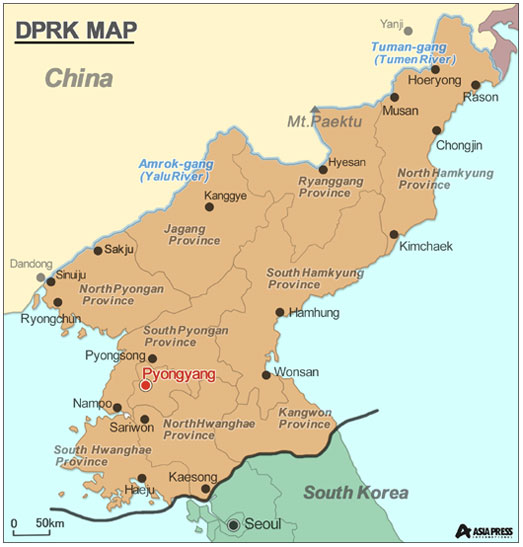
- <Inside N. Korea> Students and parents unhappy with shoddily-made school uniforms…Authorities crackdown on homemade uniforms to force everyone to wear the same thing
- What occurred behind the veil in N.Korea 2020-2023…A disaster unfolding due to shifts in the Kim Jong-un regime’s policies…Part 4: A serious humanitarian crisis and the appearance of “Kim Ju-ae” ISHIMARU Jiro
- What occurred behind the veil in N.Korea 2020-2023…A disaster unfolding due to shifts in the Kim Jong-un regime’s policies…Part 3: Kim Jong-un’s anti-market policies ISHIMARU Jiro
- What occurred behind the veil in N.Korea 2020-2023…A disaster unfolding due to shifts in the Kim Jong-un regime’s policies…Part 2: The impact of the border closure…escape is now almost impossible ISHIMARU Jiro
- <Inside N. Korea> Government implements wage hike of more than 10 times (1) Wages increase for employees of state-run enterprises and government agencies
